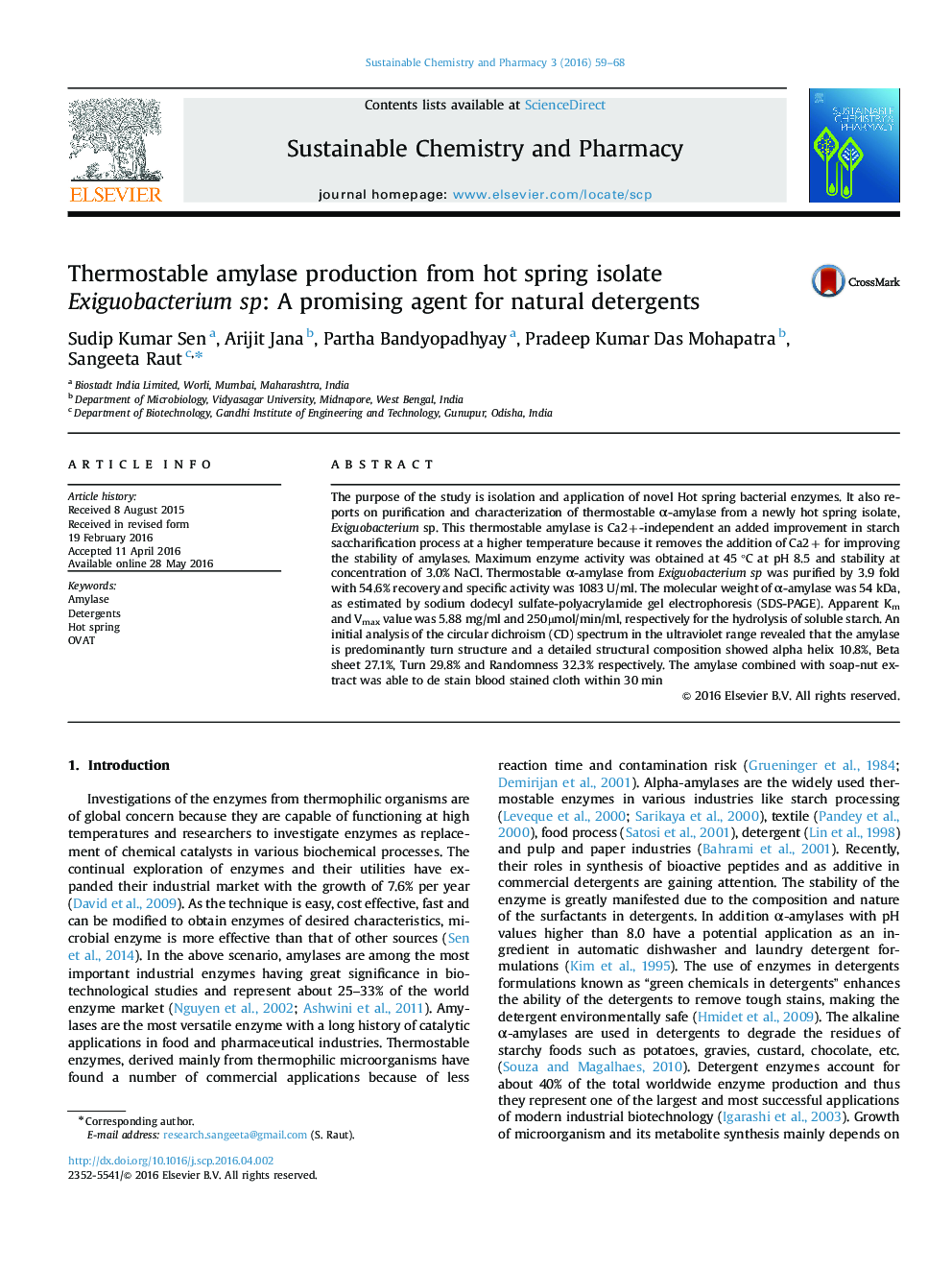| Article ID | Journal | Published Year | Pages | File Type |
|---|---|---|---|---|
| 4434504 | Sustainable Chemistry and Pharmacy | 2016 | 10 Pages |
•Using natural waste as substrate which is cost effective.•Sapindus extract with amylase from hot spring isolates used as a bio- detergent for laundry industry.•Exiguobacterium sp. grows and produces alkaline amylase at highly alkaline pH (10.0).
The purpose of the study is isolation and application of novel Hot spring bacterial enzymes. It also reports on purification and characterization of thermostable α-amylase from a newly hot spring isolate, Exiguobacterium sp. This thermostable amylase is Ca2+-independent an added improvement in starch saccharification process at a higher temperature because it removes the addition of Ca2+ for improving the stability of amylases. Maximum enzyme activity was obtained at 45 °C at pH 8.5 and stability at concentration of 3.0% NaCl. Thermostable α-amylase from Exiguobacterium sp was purified by 3.9 fold with 54.6% recovery and specific activity was 1083 U/ml. The molecular weight of α-amylase was 54 kDa, as estimated by sodium dodecyl sulfate-polyacrylamide gel electrophoresis (SDS-PAGE). Apparent Km and Vmax value was 5.88 mg/ml and 250µmol/min/ml, respectively for the hydrolysis of soluble starch. An initial analysis of the circular dichroism (CD) spectrum in the ultraviolet range revealed that the amylase is predominantly turn structure and a detailed structural composition showed alpha helix 10.8%, Beta sheet 27.1%, Turn 29.8% and Randomness 32.3% respectively. The amylase combined with soap-nut extract was able to de stain blood stained cloth within 30 min
Graphical abstractFigure optionsDownload full-size imageDownload as PowerPoint slide
